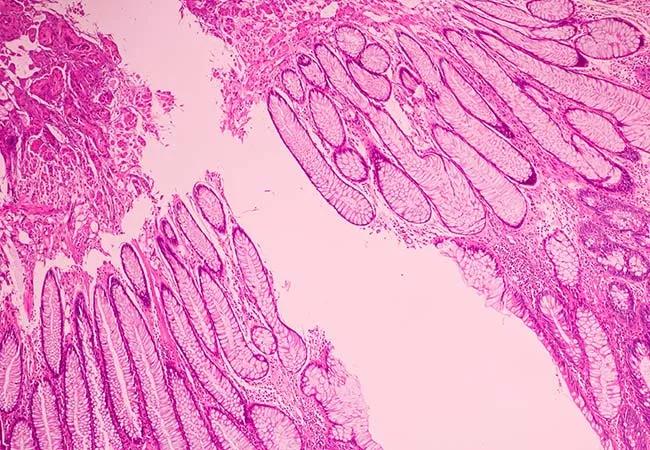DESTINY-Breast04 study leads to practice-changing findings

The latest findings from the multicenter DESTINY-Breast04 trial revealed that HER2-directed therapy showed statistically significant and clinically meaningful benefit in progression-free survival (PFS) and overall survival (OS) compared to the standard-of-care treatment in patients with HER2-low refractory metastatic breast cancer. Study findings were presented at the American Society for Clinical Oncology (ASCO) 2022 annual meeting held in Chicago on June 2-6, 2022.
Advertisement
Cleveland Clinic is a non-profit academic medical center. Advertising on our site helps support our mission. We do not endorse non-Cleveland Clinic products or services. Policy
“Compared with standard treatment, the use of trastuzumab deruxtecan approximately doubled the progression-free survival,” says medical oncologist Halle Moore, MD, one of the study leads at Cleveland Clinic. “In terms of the overall survival, there was about a six-month survival advantage to trastuzumab deruxtecan compared with standard chemotherapy. That’s a pretty remarkable advantage compared with what had been our standard treatment.”
Dr. Moore explains that the treatments for breast cancer vary based on hormone receptor and HER2 positivity/negativity: the main treatments for hormone-receptor positive breast cancer that is HER2-negative are hormone-directed treatments such as estrogen-blocking therapies in addition to targeted treatments that can be added to them. However, she notes that at some point, the tumors become refractory, and chemotherapy becomes the main treatment.
“Similarly, triple-negative breast cancers have chemotherapy as the mainstay of treatment, although some may benefit from immunotherapy early on, but again, once they progress on initial therapy, a series of chemotherapy drugs would be the typical treatment,” she says. “HER2-positive breast cancer represents a group for whom we’ve seen great strides with HER2-directed therapy, and we’ve seen significant improvements in survival with drugs like trastuzumab, the antibody directed against HER2, and some newer drugs that are also directed against HER2, including trastuzumab deruxtecan.”
Trastuzumab deruxtecan (T-DXd) is an antibody-drug conjugate that links a chemotherapy drug to an antibody as a way of delivering the drug to the tumor cell. According to Dr. Moore, HER2-low breast cancer is a cancer that has some level of HER2 expression, but not at the level where trastuzumab alone would be beneficial.
Advertisement
“It turns out that at some levels of HER2 expression, we can see a benefit to this new medication that combines trastuzumab with a chemotherapy drug linked to it,” she says. “Rather than HER2 being the target for the treatment, it’s basically a target for the delivery system and instead of high levels of HER2 expression, you just need some HER2 expression to get the chemotherapy in the vicinity of cancer cells.”
The main goal of the DESTINY-Breast04 trial was to compare PFS among patients with hormone receptor positive and centrally confirmed HER2-low metastatic breast cancer who were treated with T-DXd versus standard chemotherapy. The study’s additional endpoints included PFS for the entire study cohort which included triple-negative patients, as well as OS in patients with hormone receptor positive metastatic breast cancer and OS in the full analysis set.
“Investigators were allowed to choose from standard chemotherapy, including capecitabine, eribulin, gemcitabine, paclitaxel and nab-paclitaxel,” Dr. Moore says. “The choice would depend on what drug the patient had previously received, and assessment of the toxicity and efficacy profile for the individual patient.”
Study findings revealed a PFS of 10.2 months in patients with HER2-low metastatic breast cancer treated with T-DXd versus 5.4 months in patients treated with standard chemotherapy. Similarly, in the full analysis set, PFS was 9.9 months in patients treated with T-DXd compared to 5.1 months in patients treated with standard chemotherapy. Overall survival was 23.9 months versus 17.5 months (T-DXd vs standard treatment), and 23.4 months versus 16.8 months, in the two respective analysis cohorts. Pneumonitis was the most concerning treatment-related adverse event in patients treated with T-DXd, occurring in 12.1% of patients.
Advertisement
“For the first time we’re seeing that some of the advantage to HER2 targeted therapies that had only been enjoyed by a small subset of patients with HER2 positive disease is now extendedto patients with HER2 negative disease that have low levels of HER2 expression,” Dr. Moore explains. “This is very important because this represents a very large portion of patients with metastatic breast cancer.”
She pronounced these findings as practice changing, and believes that they will likely lead to a paradigm shift to trastuzumab deruxtecan in the treatment guidelines for patients with HER2-low metastatic breast cancer, both within Cleveland Clinic and nationally.
“We will be putting this into our guidelines here at Cleveland Clinic. I have no doubt that the NCCN will incorporate that into their guidelines, and I am hoping that the FDA will also approve this,” she concludes.
Advertisement
Advertisement

Combining advanced imaging with targeted therapy in prostate cancer and neuroendocrine tumors

Early results show strong clinical benefit rates

The shifting role of cell therapy and steroids in the relapsed/refractory setting

Radiation therapy helped shrink hand nodules and improve functionality

Standard of care is linked to better outcomes, but disease recurrence and other risk factors often drive alternative approaches

Phase 1 study demonstrates immune response in three quarters of patients with triple-negative breast cancer

Multidisciplinary teams bring pathological and clinical expertise

Genetic variants exist irrespective of family history or other contributing factors